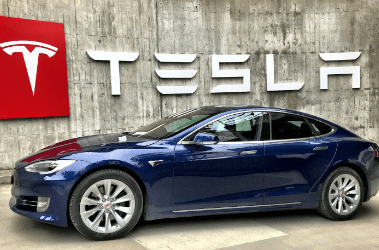When Elon Musk bought Twitter, now called X Corp, in 2022, he made major changes fast. One of these changes was letting go of top executives, including former Twitter CEO Parag Agrawal. But now, Musk is facing a serious legal challenge. Agrawal and some other ex-executives claim that they were unfairly dismissed to stop them from getting their severance packages—extra money they believed they were owed for leaving their positions.

A judge recently decided not to dismiss this case, meaning Musk will have to face these claims in court. Here’s what you need to know about this legal clash and why it’s making headlines.
A Quick Background
When Musk took over Twitter, it wasn’t just a quiet takeover. He spent a massive $44 billion on the company, and right after, he made big moves to change how Twitter operated. Along with firing many regular employees, he also let go of some of Twitter’s top leaders, including Parag Agrawal, Twitter’s former CEO. Agrawal and these executives were expected to leave, but they claim they were fired in a way that prevented them from getting the severance money they were due.
In March 2024, Agrawal and other former top executives filed a lawsuit, arguing that Musk let them go right as he was finalizing the Twitter deal. According to their complaint, Musk fired them too soon, so they wouldn’t be able to resign on their own terms and receive a severance package.
A Key Quote Sparks Controversy
Adding fuel to the fire is something Musk reportedly said, which was included in his biography written by Walter Isaacson. In the book, Musk is quoted saying there was a “200-million differential in the cookie jar between closing tonight and doing it tomorrow morning.” The ex-Twitter leaders argue this quote shows Musk’s intent to rush the process to avoid paying them severance. This quote may play a key role in court, as it hints that Musk might have had financial motives behind his decision to fire the executives quickly.
Musk’s legal team tried to get this case thrown out of court, but on November 2, 2024, a judge ruled that the claims by Agrawal and the other former executives could go forward. This decision doesn’t mean that Agrawal and the others have won their case, but it does mean that Musk can’t avoid these claims without a legal fight. The case will move forward, with both sides presenting their arguments in court.
Why This Matters: Musk’s Bigger Legal Battle
This isn’t the only legal battle Musk has been facing. Since he took over Twitter, he has been dealing with other claims from employees who were laid off. Thousands of former Twitter staff say they were promised severance but never received it after Musk’s acquisition. In September 2024, one former employee even won back pay in a private hearing. This case might encourage others to come forward with similar complaints, putting Musk under even more pressure.
As these cases continue, they could set legal precedents. If more ex-Twitter employees win their cases, Musk might be required to pay a large amount in severance to former workers. The court could rule that Twitter employees were entitled to certain protections, even after a takeover.
How This Case Could Impact Other Companies
Musk’s case could send a message to other tech companies and CEOs. Severance packages are typically given to executives or employees when they leave a company, especially during major transitions like a merger or acquisition. These payments are often agreed upon in contracts, protecting employees from suddenly being left without compensation after they lose their jobs.
If Musk loses, it could show companies that they need to honor severance packages and avoid letting go of people without following contract terms. It could also set stricter rules for takeovers in the tech industry, ensuring employees get fair treatment when leadership changes hands. For CEOs, this case serves as a reminder to keep their word and be clear about contracts.
Parag Agrawal’s Side of the Story
Agrawal and the other executives argue they would have been willing to leave with dignity if they had received their agreed-upon payments. For many high-ranking leaders, severance packages are a way to recognize their service and help them transition to their next jobs. They claim they felt disrespected when they were dismissed in a way that appeared calculated to avoid these payments.
Musk’s Viewpoint
From Musk’s perspective, he may see these severance payments as unnecessary or even excessive. When he acquired Twitter, he aimed to make the company leaner, possibly believing that cutting costs was essential to keep the platform alive and thriving. Musk may feel he did what he thought was best for Twitter, even if it meant letting go of top executives without paying the severance.
For Musk, keeping his costs down could be vital, as running Twitter, now X Corp, has been expensive. Musk has already faced challenges balancing expenses and income on the platform, and the idea of spending millions on severance packages might seem unreasonable to him.
What’s Next?
The next steps in this case will likely involve more court hearings. Both Musk’s legal team and the ex-Twitter executives will present their evidence, with each side explaining why they believe they’re in the right. The court will need to decide if Agrawal and the other executives are truly owed severance or if Musk had the right to let them go without paying.

Musk could still try to settle the case out of court, which means reaching an agreement without going through a full trial. Settling could allow Musk to move past this issue and focus on other challenges, but it would also mean giving up some control over the final decision. However, if he chooses to fight this case fully, it could lead to a lengthy and public trial, drawing more attention to his actions during the Twitter takeover.
A Broader Lesson on Business Ethics
At its core, this case highlights a bigger issue in business: the need for fairness and transparency. Severance packages are a way of respecting employees, especially in times of change. If the court finds that Musk purposefully avoided paying these packages, it may signal that even top executives deserve fair treatment.
For young readers or anyone interested in business, this case serves as a reminder that being a leader isn’t just about making big changes. It’s also about treating people fairly and honoring commitments, especially when a company’s future is at stake.








